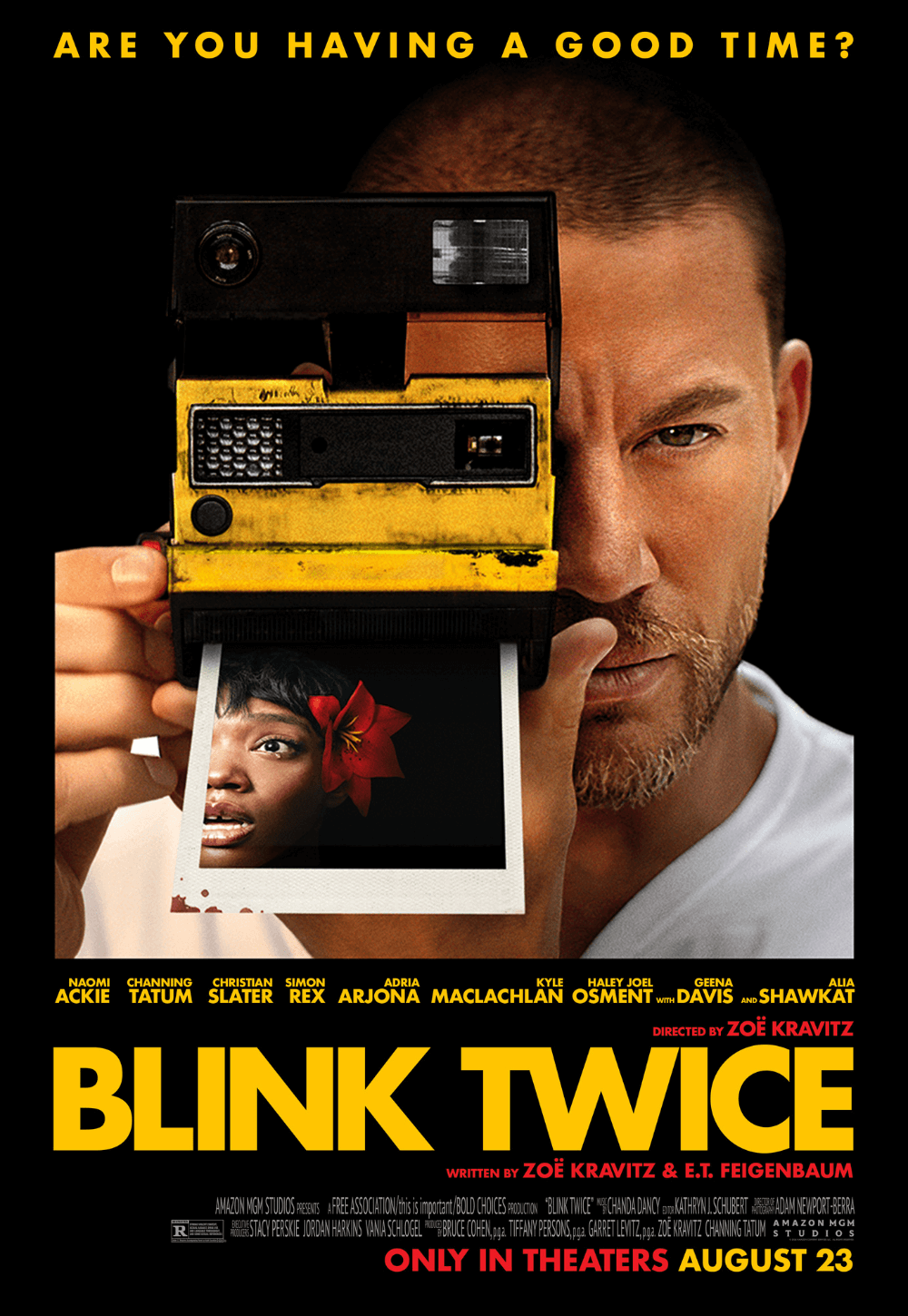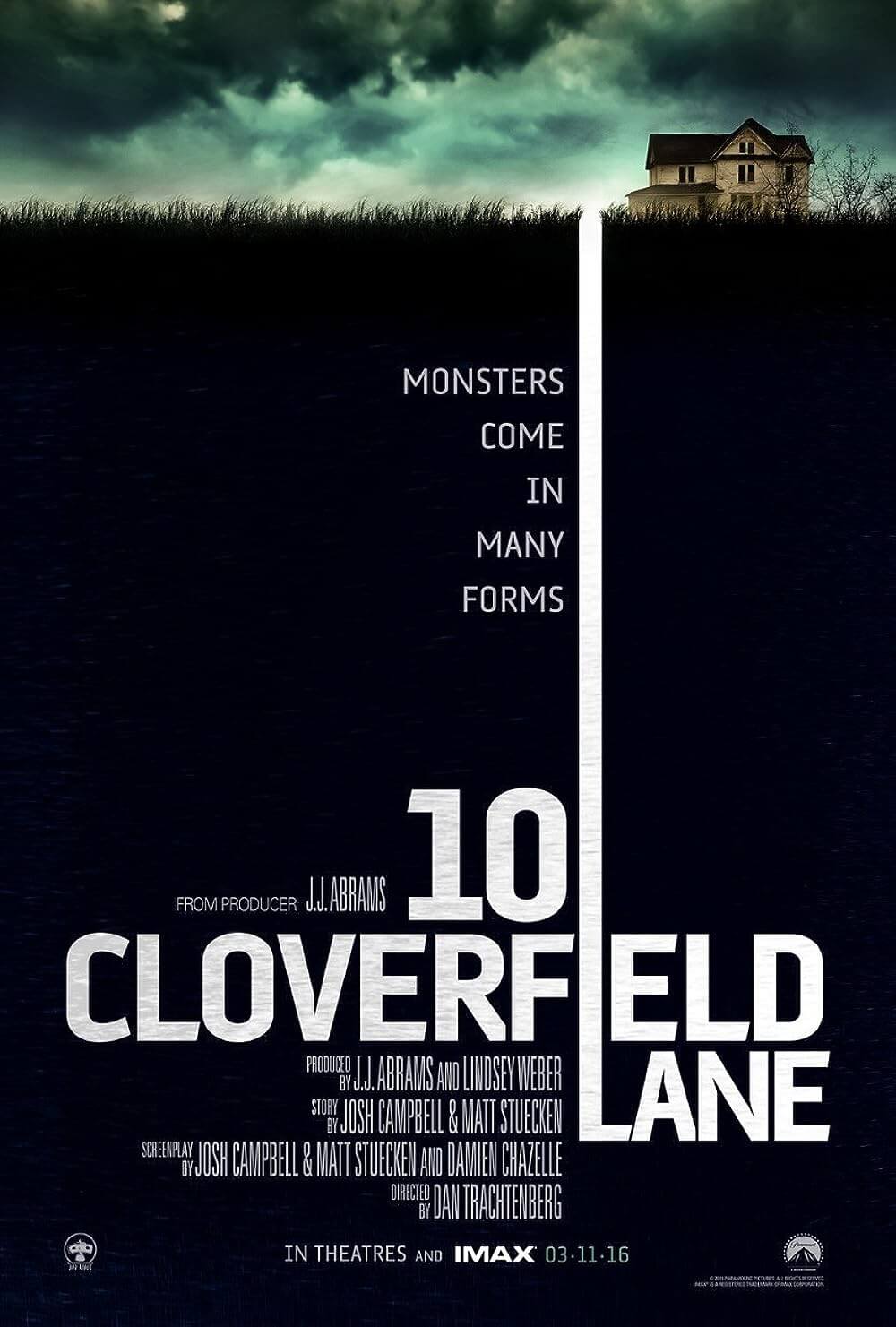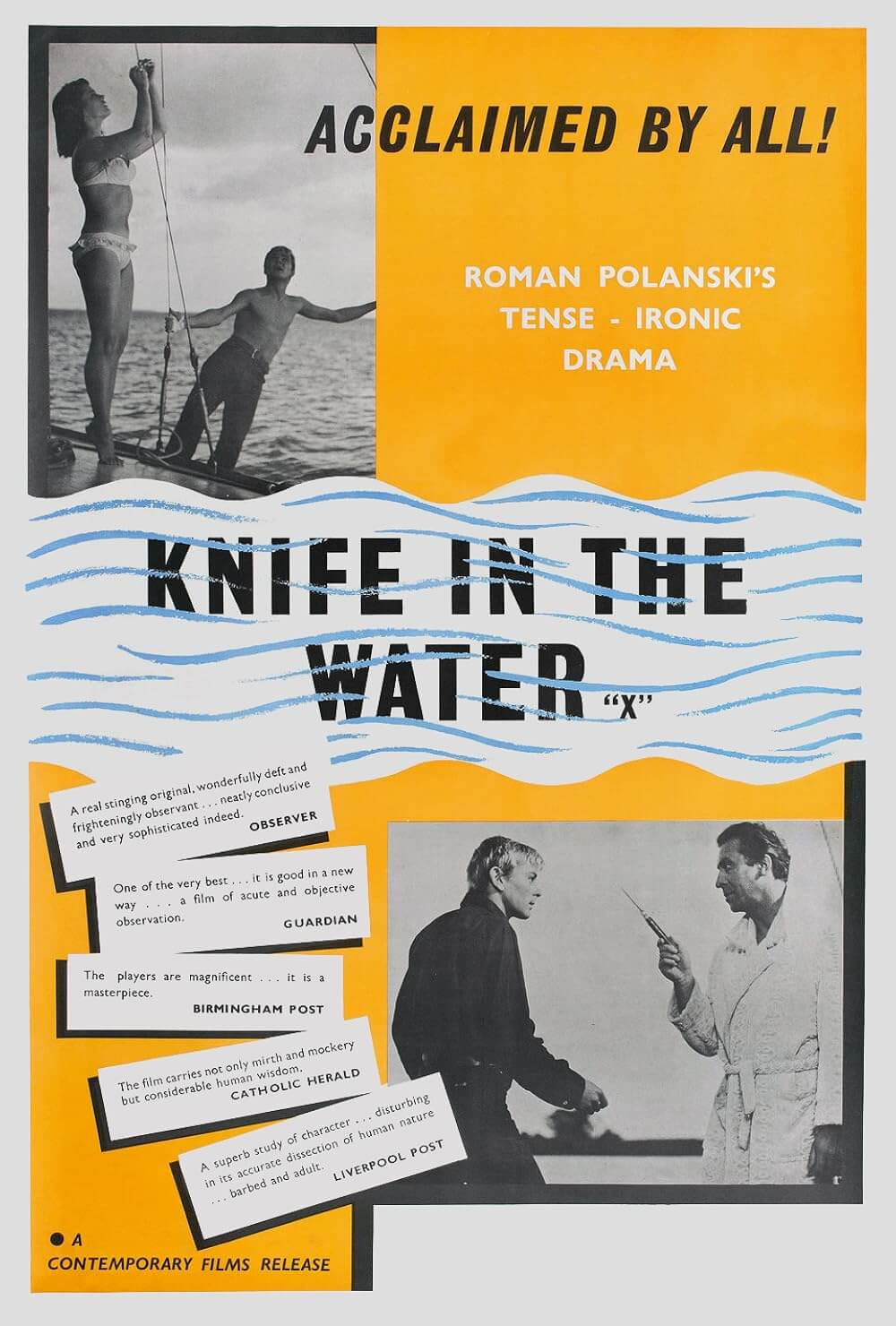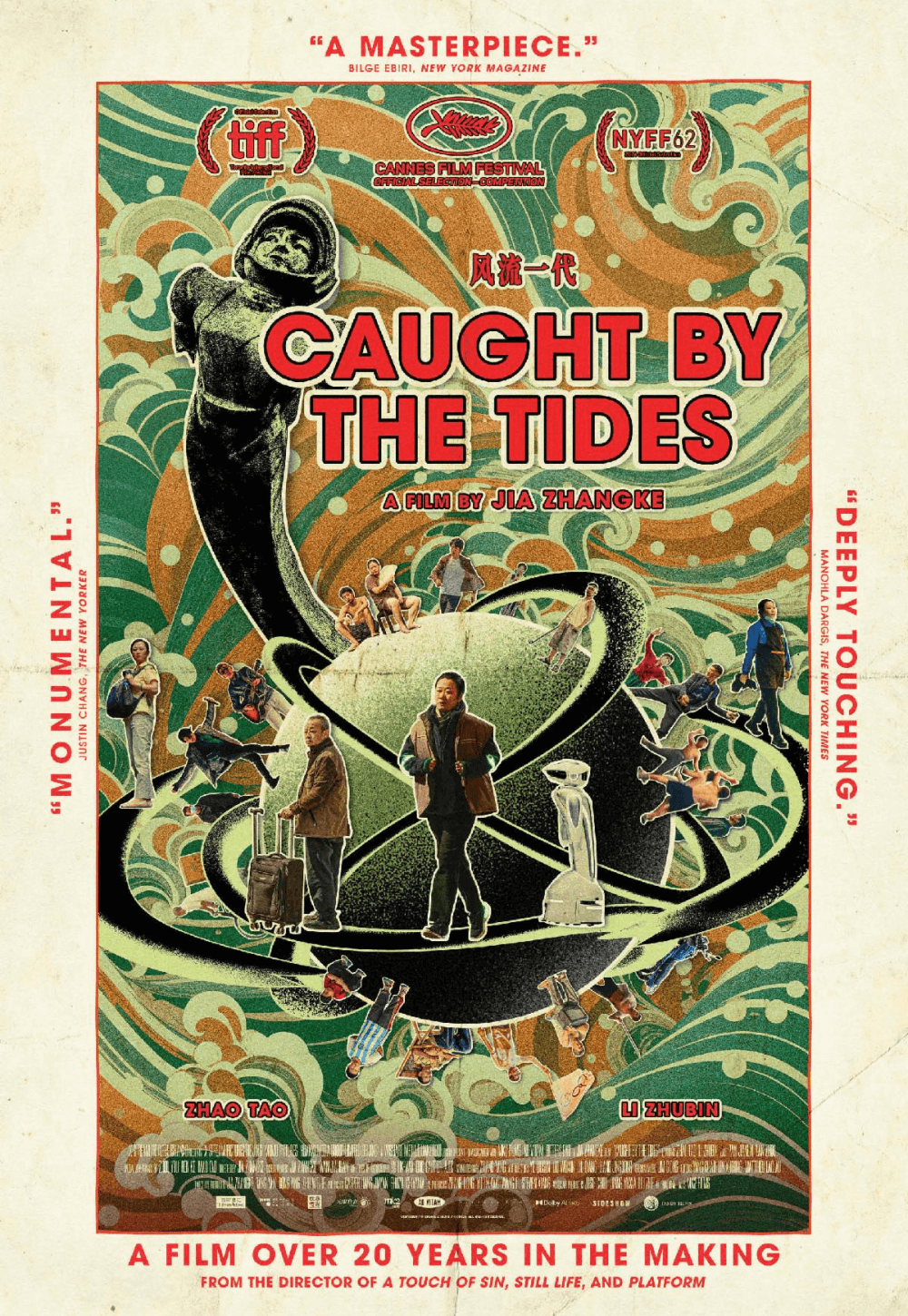
Blink Twice
By Brian Eggert |
An attractive billionaire who’s had to make a public apology in the past for his vague “abuse of power” and “regrettable behavior” invites you onto his plane for a getaway to his private island. Joining you will be a few of his hard-partying inner circle and other young women. Do you heed the obvious and all-too-familiar warning signs, or take this once-in-a-lifetime opportunity? Frida, the protagonist of Zoë Kravitz’s tightly wound yet also disjointed directorial debut Blink Twice, resolves to take the trip, finding tech magnate Slater King (Channing Tatum) irresistible. Played by Naomi Ackie, Frida is tired of working dead-end jobs with her friend and roommate Jess (Alia Shawkat), where their boss reminds them, “Smile, ladies.” But they exchange one objectifying remark for another when the unofficial tagline of their paradise getaway—“Are you having a good time?”—morphs into a creepy refrain. It’s not so much a question as a controlling mechanism, designed as both an order and a safeguard. Keeping up a pleasant appearance in the face of an unthinkable nightmare becomes the theme of Blink Twice. It means remaining a compliant, pretty thing that doesn’t ask questions and ignores whatever chilling lessons the past might teach.
Kravitz and co-writer E.T. Feigenbaum devise a twisted thriller for the #MeToo era, delivering a nimble, high-energy look at gender and power dynamics today. A supremely confident freshman feature, Kavitz’s film belongs in the same conversation as the work of Kitty Green (The Assistant, 2019; The Royal Hotel, 2023) and Emerald Fennell (Promising Young Woman, 2020; Saltburn, 2023). In no subtle terms, Kravitz presents a cautionary tale for women not to let their guard down. Frida warns about Jess’ unhealthy relationship with a man early on: “Don’t give away your power.” But a few scenes later, the two struggling New Yorkers don cocktail dresses, flirt with the upper crust, and board a plane with Slater and his band of merry men: Vic (Christian Slater), lasciviously documenting their trip with a Polaroid camera; Cody (Simon Rex), the resident cook; Tom (Haley Joel Osment), whose vulnerability about his weight shouldn’t mask that he’s just another douchebag; and Rich (Kyle MacLachlan), Slater’s shrink who confusingly comes and goes from the tropical locale. Levon Hawke, Liz Caribel, and Trew Mullen join the other women, along with Stacy (Geena Davis), Slater’s assistant.
Somehow, the presence of other women, specifically an employee like Stacy—who collects all cell phones when they arrive, which is never a good sign—sets Frida and Jess at ease for the ensuing bacchanalia: afternoons in the pool with bottomless champagne and fat blunts, followed by nightly doses of MDMA before their haute cuisine. Yet, their time on the island proves oddly sexless, with Frida and Slater casually flirting but nothing more. Still, other alarming details emerge. The island is infested with poisonous eyelash vipers, which locals under Slater’s employ kill on sight. Neither Frida nor the other women had time to pack clothes, yet Slater has white summery garb ready for them. And there’s a confusing in-joke about why Vic is missing his pinky. All of this might be explained by the general belief that rich people are freaks, living in an isolated world of their own making that reflects their obsessions. But just as Jess realizes that “something’s wrong with this place,” Frida pleads with her friend to stay and not make a fuss. For the first time, she feels seen by someone important. She wants that feeling to last.
 Kravitz keeps the viewer feeling disoriented by countering the sun-kissed locale, shot on location in Mexico, with a jarring formal presentation. In a style that reminded me of Edgar Wright’s approach of editing to connect precise camera movements, the sharp cinematography by Adam Newport-Berra and abrupt edits by Kathryn J. Schubert conspire to keep us on edge, as does the heightened sound design by Jon Flores. There’s a rhythmic flow to the proceedings, adopting an almost ritualistic pattern of meals, drugs, alcohol, hazy nights, and the persistent question: “Are you having a good time?” Everyone imbibes so many substances that it’s no wonder they can’t remember what happened the night before. But why is there dirt under Frida’s fingernails? And why can’t Sarah (Adria Arjona, from this year’s Hit Man), the winner of a Survivor-esque television show, remember how she got a bruise on her arm? When the movie reveals some of its secrets, there will be blood and shocks. Most of the fun involves the off-kilter journey to answers. However, in the rush to the end, Kravitz doesn’t wrap up the story with the same energy and clarity as she establishes it.
Kravitz keeps the viewer feeling disoriented by countering the sun-kissed locale, shot on location in Mexico, with a jarring formal presentation. In a style that reminded me of Edgar Wright’s approach of editing to connect precise camera movements, the sharp cinematography by Adam Newport-Berra and abrupt edits by Kathryn J. Schubert conspire to keep us on edge, as does the heightened sound design by Jon Flores. There’s a rhythmic flow to the proceedings, adopting an almost ritualistic pattern of meals, drugs, alcohol, hazy nights, and the persistent question: “Are you having a good time?” Everyone imbibes so many substances that it’s no wonder they can’t remember what happened the night before. But why is there dirt under Frida’s fingernails? And why can’t Sarah (Adria Arjona, from this year’s Hit Man), the winner of a Survivor-esque television show, remember how she got a bruise on her arm? When the movie reveals some of its secrets, there will be blood and shocks. Most of the fun involves the off-kilter journey to answers. However, in the rush to the end, Kravitz doesn’t wrap up the story with the same energy and clarity as she establishes it.
Blink Twice shares plenty of DNA with Jordan Peele’s Get Out (2017), along with several other eat-the-rich fare in recent years, some of them incredible (Triangle of Sadness, 2022) and others not so much (The Menu, 2022). Like those films, Kravitz’s film has a lot going for it, particularly in how it investigates how Frida feels at once seen by Slater yet unimportant, implanting a sense of desperation in her behavior. As a social satire, the film confronts our culture’s short memory—an active need to forget to avoid addressing real trauma head-on. Embedded in the film are themes of repressed memories, missing time, a desire to forget, and quick forgiveness. Frida wonders, “Why would you want to remember?”—referring to bad things, adopting an attitude that proves both dangerous and self-sabotaging. These ideas build on the lesson that we’d all be better off addressing reality than ignoring and suppressing problems because it’s easier. Unfortunately, the script has a way of overemphasizing these points with targeted language instead of allowing the audience to read or interpret the experience.
Kravitz arms her film with plenty of twists and turns, some underdeveloped or handled with scattershot attention. They become increasingly outlandish, and by the finale, the film forgets about the characters and gets wrapped up in resolving the plot. The original title, Pussy Island, probably gives too much away, and Amazon MGM Studios rebuffed it for obvious reasons. Then again, the title, a reference to asking a silenced victim, “Blink twice if you’re in danger,” has loaded implications about the film’s subject matter, too. To be sure, the viewer will likely guess what’s going on here, but the shock with which this information is delivered is stunning and effective. Despite a conclusion that strains credibility, even in these heightened situations, Blink Twice remains deliriously entertaining and ultimately a disturbing look at power, gender dynamics, and how some people never learn, and even refuse to. Above all, it announces Kravitz as an unmistakably talented filmmaker who establishes her voice with an unflinching commitment to her message.

Consider Supporting Deep Focus Review
I hope you’re enjoying the independent film criticism on Deep Focus Review. Whether you’re a regular reader or just occasionally stop by, please consider supporting Deep Focus Review on Patreon or making a donation. Since 2007, my critical analysis and in-depth reviews have been free from outside influence. Becoming a Patron gives you access to exclusive reviews and essays before anyone else, and you’ll also be a member of a vibrant community of movie lovers. Plus, your contributions help me maintain the site, access research materials, and ensure Deep Focus Review keeps going strong.
If you enjoy my work, please consider joining me on Patreon or showing your support in other ways.
Thank you for your readership!
Brian Eggert | Critic, Founder
Deep Focus Review







